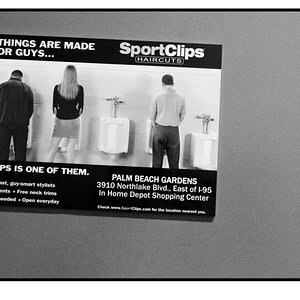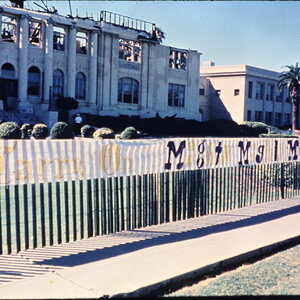Buckster
In memoriam
- Joined
- Sep 14, 2009
- Messages
- 6,399
- Reaction score
- 2,341
- Location
- Way up North in Michigan
- Can others edit my Photos
- Photos NOT OK to edit
Do tell. I didn't know that.Many of the finest pics to have ever existed were done with Kodachrome, where PP was a physical impossibility.
So, can you explain how any photos made on Kodachrome would get into a magazine or onto a poster? Or were they only seen at the photographer's house on a slide projector?
I'm interested to know the technique involved that prevented anyone from doing any PP in that process; no possibility for introducing filters, masks, sandwiching, vignetting, drawing, dying or painting on the slide itself before projecting, etc. Explain how and why it was physically impossible to place anything at all between the slide and the paper while making a print, and how it was impossible to use dyes and paint and so on directly on the print for touch ups and so on, because I'm having trouble wrapping my mind around how that would be "impossible".
This will no doubt be fascinating! I love to learn new stuff!


![[No title]](/data/xfmg/thumbnail/40/40300-583eaa43665714005823e12314084a4d.jpg?1619739411)

![[No title]](/data/xfmg/thumbnail/39/39187-9ec2507d9e5ef2843f7f00127c7abb4c.jpg?1619738905)

![[No title]](/data/xfmg/thumbnail/36/36401-dfb1077e5917eb47c5acf9c208e7be2a.jpg?1619737552)

![[No title]](/data/xfmg/thumbnail/39/39189-22b7e8d8eadc9cc3d7b341bfb336079e.jpg?1619738906)



![[No title]](/data/xfmg/thumbnail/39/39190-ad9c6f150974752f1f888660cc52b68e.jpg?1619738907)
